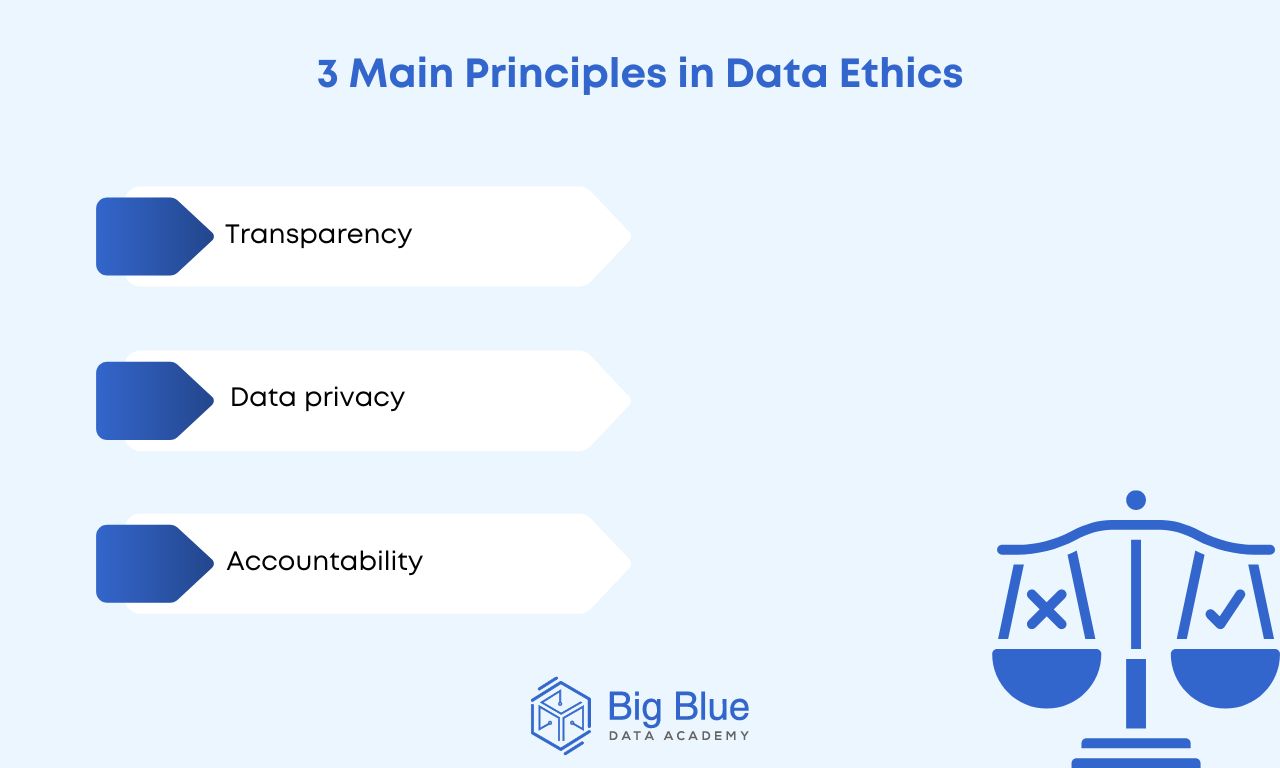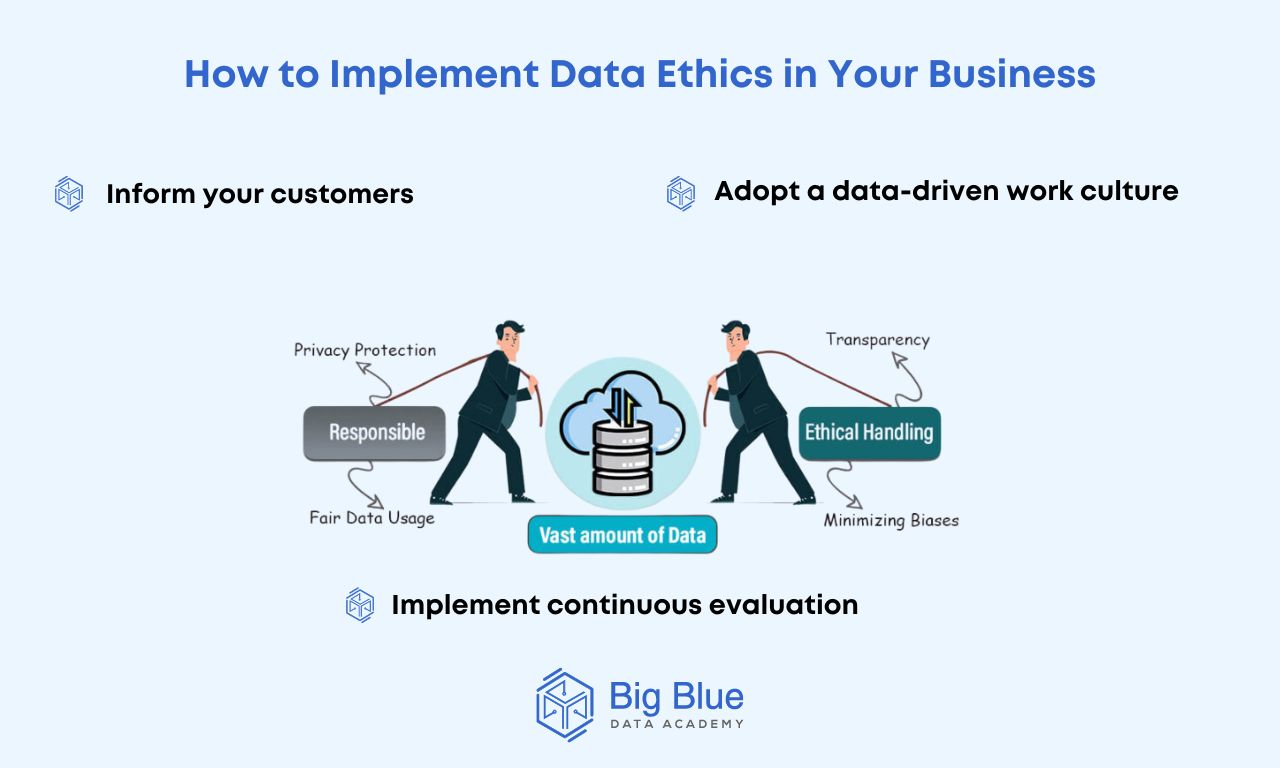Data Ethics: Definition, Significance & Practices
In today's era, more than ever, companies have an enormous amount of data at their disposal.
Recognizing this fact, an increasing number of organizations have begun incorporating data scientists and other technology professionals into their existing teams to effectively manage this vast volume of data.
However, a critical aspect of data that some companies may not have systematically considered is the ethical dimension of data management referred to as data ethics.
In this article, we will explore in detail:
- What data ethics is
- Why it is important
- The fundamental principles of data ethics
- Challenges and practices in the field of ethical data use
Let's start with the basics.
What is Data Ethics and Why Is it Important?
Data ethics, or the ethical use of data, refers to the principles and practices that organizations follow when collecting, protecting, and utilizing the data at their disposal.
It is an ethical field that focuses on the moral obligations a company should have when collecting and using significant information about individuals.
This aspect can either enhance or negatively impact the trust of people and society.
Recalling the events of March 2021, we witnessed one of the biggest data breaches, raising questions and concerns about how organizations store and protect personal information.
Specifically, the privacy of over 530 million Facebook users was compromised when their data was published on an open hacker forum.
Therefore, data ethics is vital as it protects a company's customers' sensitive information, enhancing the trust individuals and society place in a company.
Furthermore, in cases of unethical data use, a company is at risk of penalties, as various privacy regulations, such as the European General Data Protection Regulation (GDPR), have come into effect.
Now that we have covered some basics about data ethics, let's delve into some fundamental principles that are good to follow.
What Are the Basic Principles of Data Ethics?
Some of the basic principles of data ethics that are important to follow include:

Principle #1: Transparency
Transparency is a fundamental principle that emphasizes the importance of clear communication about how data is collected, and stored, and to whom the data could potentially be disclosed by a company.
In essence, it addresses how a company will use the data it has at its disposal.
Principle #2: Data Privacy
Another ethical responsibility regarding data handling is ensuring the privacy of data.
Suppose a customer, for example, gives consent to a company for the collection and storage of their personally identifiable information (PII).
In that case, their basic expectation is protection from any public exposure of their data.
Personal Identifiable Information (PII) includes any information linked to an individual's identity, such as:
- Name
- Address
- Phone number
- Credit card details
Principle #3: Accountability
The third fundamental principle is accountability, which involves a company taking responsibility for what happens to an individual's data after its collection.
Each company needs to take responsibility for the potential harm that may result from the processes it follows, such as in the case of a user data breach.
How to Implement Data Ethics in Your Business
For the implementation of data ethics and the sustainability of your business, you can follow these practices:

Practice #1: Inform your customers
First and foremost, it is important to provide information to your customers regarding the data you collect, store, and how it will be used.
To protect user privacy, ensure as a company that you store data in a secure database to prevent it from falling into the wrong hands.
Practice #2: Adopt a data-driven work culture
It is also important to adopt a data-driven work culture and continuously educate your staff about the regulations that need to be followed regarding data usage.
For this purpose, you can appoint someone responsible, such as a data science manager, to guide your data team with appropriate advice and guidelines.
Practice #3: Implement continuous evaluation
Finally, it is essential to continuously evaluate data governance and the impact of your algorithms, such as assessing their fairness.
After your evaluation, you can proceed to make adjustments and optimizations accordingly.
Ramping Up
We have seen what data ethics is, why it is crucial, the basic principles of data ethics, and some best practices for its implementation in your business.
Proper training in ethical data use is crucial for the evolution and sustainability of a business in today's competitive environment.
If you are intrigued and want to learn more about the fascinating world of data, follow us, and we will keep you posted!

.jpg)
.jpg)